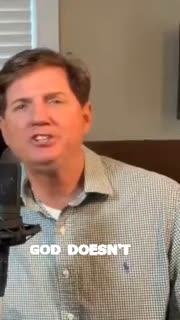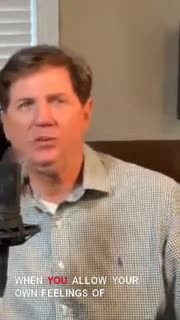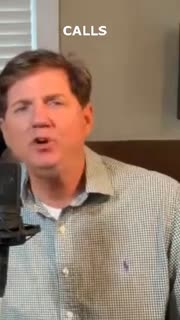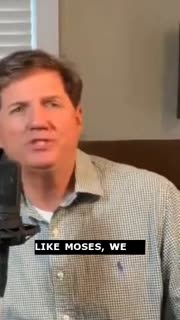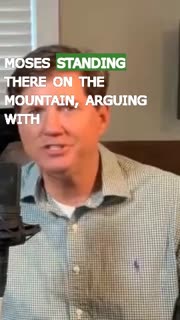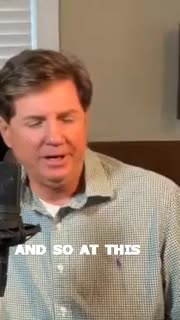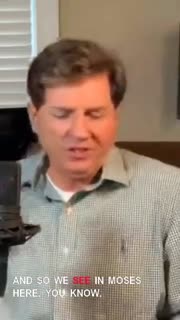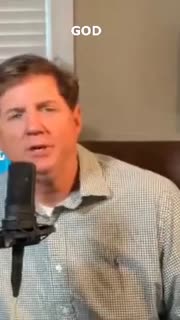Equipped for God's Call: Overcoming Inadequacy
Devotional
Sermon Summary
Bible Study Guide
Sermon Clips
### Quotes for outreach
1. "God doesn't call the equipped. God equips the called. And so as we look around us today, we see, we see that God's children still suffer, uh, whether from famine or, or natural disaster or racial prejudice or poverty or, or violence or something else. The people still suffer. God's children still in need for people called people to go to them." [11:54] (27 seconds)
2. "When you allow your own feelings of inadequacy to prevent you from serving God, you know, you're taking on responsibility that God never intended for you to have because you see your ability is not the question. It's your willingness to trust, obey, serve, and, and follow God. That's what it is." [11:24] (27 seconds)
3. "The one who calls you is faithful and he will do it. The one who calls you is faithful and he will do it. You know, I've heard it said many times, God doesn't call the equipped. God equips the called." [11:54] (16 seconds)
4. "Like Moses, we too are called by God to speak for those who cannot speak for themselves, to speak against injustice and inequality, to, to speak against the political, political and economic powers of this world, which continue to enslave the poor and the powerless. But like Moses, we do not go alone, but we go in the strength of a God who calls us and sends us." [12:34] (29 seconds)
### Quotes for members
1. "Moses standing there on the mountain, arguing with God while God is giving him, you know, reason after reason why God is calling him. And in essence, you know, Moses was kind of implying that God didn't know what he was getting into. God, you just don't know who you're getting into with me. You know, he, or God didn't, he didn't know what he was doing as he was calling Moses. But for every objection that Moses made, God had an answer." [10:43] (32 seconds)
2. "And so there's those three signs. And they're not just magic tricks. There's symbolism here. There's symbolism here that Moses, I think, would have immediately understood. And the first one, when you go back to the snake, you know, the staff becoming a snake, the symbol for Pharaoh in Egypt is that of a snake. I mean, it's on their crown or diadem." [04:36] (25 seconds)
3. "And so at this point in the story, God has about had it with Moses. And Scripture says he gets angry at Moses. And he says, Okay, then what about your brother Aaron? He's a great public speaker. And even now, I am sending him to meet you. But take your staff along so you can perform those signs with it." [08:07] (25 seconds)
4. "And so we see in Moses here, you know, these excuses that sometimes, you know, we can put into modern context of how we make excuses. And I'm reminded of the words of that, that immortal theologian, Pogo, who says, we have met the enemy and he is us." [09:50] (20 seconds)
5. "And so God gives Moses several signs. First, God asks Moses, you know, what's that in your hand, Moses? And it's his staff. It's a wooden stick, you know, shepherds use to sort of guide and direct sheep. They also, you know, he would have used it kind of as a walking cane to give better stability as he's walking through the desert terrain there, kind of like hiking poles, I guess." [02:03] (24 seconds)
Ask a question about this sermon
1. "God doesn't call the equipped. God equips the called. And so as we look around us today, we see, we see that God's children still suffer, uh, whether from famine or, or natural disaster or racial prejudice or poverty or, or violence or something else. The people still suffer. God's children still in need for people called people to go to them." [11:54] (27 seconds)
2. "When you allow your own feelings of inadequacy to prevent you from serving God, you know, you're taking on responsibility that God never intended for you to have because you see your ability is not the question. It's your willingness to trust, obey, serve, and, and follow God. That's what it is." [11:24] (27 seconds)
3. "The one who calls you is faithful and he will do it. The one who calls you is faithful and he will do it. You know, I've heard it said many times, God doesn't call the equipped. God equips the called." [11:54] (16 seconds)
4. "Like Moses, we too are called by God to speak for those who cannot speak for themselves, to speak against injustice and inequality, to, to speak against the political, political and economic powers of this world, which continue to enslave the poor and the powerless. But like Moses, we do not go alone, but we go in the strength of a God who calls us and sends us." [12:34] (29 seconds)
### Quotes for members
1. "Moses standing there on the mountain, arguing with God while God is giving him, you know, reason after reason why God is calling him. And in essence, you know, Moses was kind of implying that God didn't know what he was getting into. God, you just don't know who you're getting into with me. You know, he, or God didn't, he didn't know what he was doing as he was calling Moses. But for every objection that Moses made, God had an answer." [10:43] (32 seconds)
2. "And so there's those three signs. And they're not just magic tricks. There's symbolism here. There's symbolism here that Moses, I think, would have immediately understood. And the first one, when you go back to the snake, you know, the staff becoming a snake, the symbol for Pharaoh in Egypt is that of a snake. I mean, it's on their crown or diadem." [04:36] (25 seconds)
3. "And so at this point in the story, God has about had it with Moses. And Scripture says he gets angry at Moses. And he says, Okay, then what about your brother Aaron? He's a great public speaker. And even now, I am sending him to meet you. But take your staff along so you can perform those signs with it." [08:07] (25 seconds)
4. "And so we see in Moses here, you know, these excuses that sometimes, you know, we can put into modern context of how we make excuses. And I'm reminded of the words of that, that immortal theologian, Pogo, who says, we have met the enemy and he is us." [09:50] (20 seconds)
5. "And so God gives Moses several signs. First, God asks Moses, you know, what's that in your hand, Moses? And it's his staff. It's a wooden stick, you know, shepherds use to sort of guide and direct sheep. They also, you know, he would have used it kind of as a walking cane to give better stability as he's walking through the desert terrain there, kind of like hiking poles, I guess." [02:03] (24 seconds)
